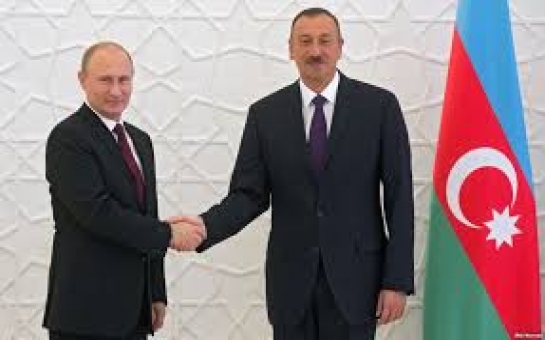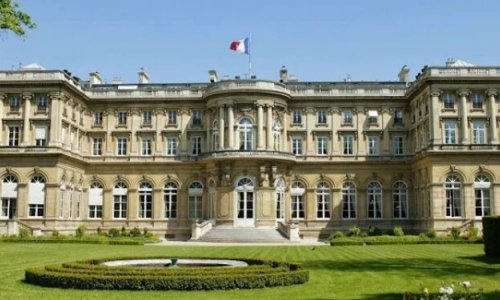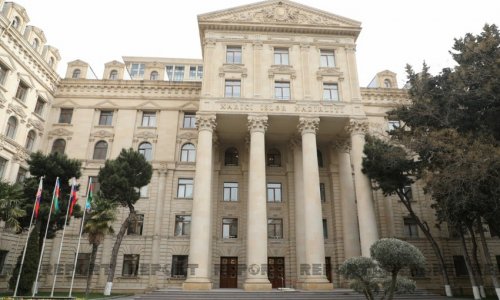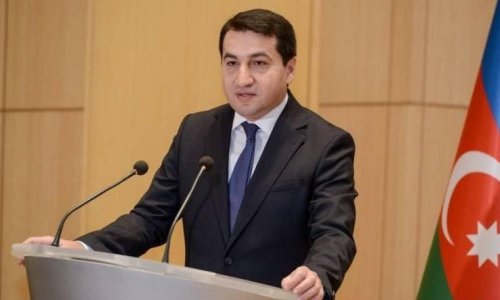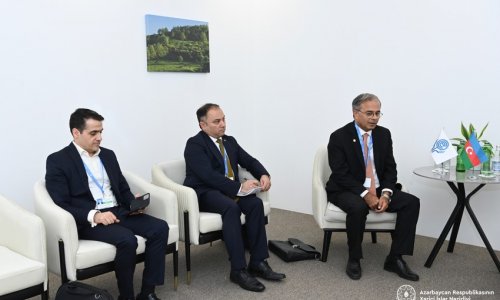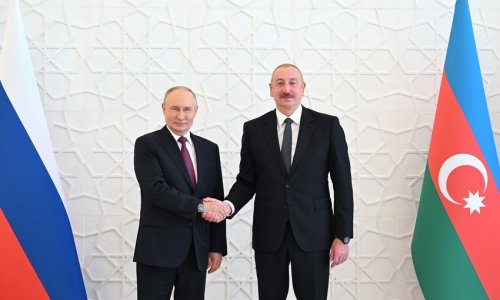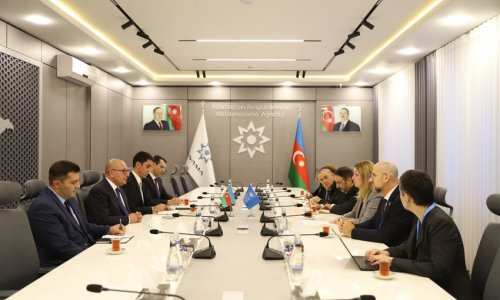By Amanda Paul
Of the six countries in the European Union's Eastern Partnership (EaP), Azerbaijan is the only one that has not chosen to definitively align itself with either the EU or Russia. With the signing of Association Agreements with the EU on June 27, Ukraine, Moldova and Georgia declared their strategic choice to further integrate with the EU and, despite Russian opposition and aggression, stated full membership as their goal. Meanwhile, Belarus and Armenia have taken another path, choosing Russia's Eurasian Union (EaU).
Azerbaijan has had a cautious approach, not wanting to openly confront Russia. Baku has tried to balance between the two unions. Nevertheless, when analyzing Azerbaijan's relationships with the West and Russia, it seems that Baku's feet are increasingly under the West's table. In fact, this engagement is nothing new. It began 20 years ago when former President Heydar Aliyev signed the “Oil Contract of the Century” with a consortium of Western energy companies. Over the last two decades ties with Euro-Atlantic institutions have gradually deepened, but Azerbaijan has no aspirations to join either the EU or NATO. However, Baku wants Western “know-how” to work on modernizing the country and educating the population, including of vocational training, best practices for the energy sector and science and technology.
For the EU, Azerbaijan is an important and reliable partner. While energy is the backbone of the relations because of Azerbaijan's key role in the Southern Gas Corridor, European Commission (EC) President Jose Manuel Barroso expressed a desire to deepen ties during a speech at Azerbaijan Diplomatic Academy on June 12. Today, the two partners are moving ahead with a “Strategic Partnership for Modernization (SPM)” along with ongoing Association Agreement talks. Negotiations on the new SPM agreement have nearly concluded and the EU hopes its signing will take place before the current EC term ends in autumn.
However, this relationship is not without difficulties. While on the one hand the EU would like to see Azerbaijan take more steps towards improving democracy and human rights, Baku on the other hand would like the EU to have a more credible and consistent approach towards recognizing Azerbaijan's territorial integrity, as it does with other EaP countries that have territorial disputes -- Georgia, Moldova and most recently Ukraine. Unfortunately, the EU's ongoing ambiguous approach towards Azerbaijan's territorial integrity is a thorn in its relationship. In fact, all agreements negotiated between the EU and EaP states should underline explicit support for territorial integrity and put an end to the current selective approach.
Despite the fact that Azerbaijan has not expressed a desire to join the EU, with Russian President Vladimir Putin fixated on “rebuilding” the Soviet Union, Baku has come under increasing pressure from Moscow, which would like to see Baku in the EaU. In recent weeks Moscow has significantly increased its diplomatic activity with a number of visits to Baku, including from Russian Foreign Minister Sergei Lavrov, who arrived the day after Barroso left.
Azerbaijan wants good relations with Moscow, but it also wants to maintain full control over its foreign and economic policies. Joining the EaU would affect this independence. Not only would it have no added value for Azerbaijan economically, it would also impinge on Azerbaijan's sovereignty. While Russia presently continues to be focused on Ukraine and take steps to punish Moldova for its move towards the EU, as with the other EaP countries in the region, Russia may also try to impact Baku's foreign policy choices by pushing on its weak spots. Some 500,000 Azerbaijanis work in Russia; Azerbaijan is home to Lezgin ethnic minority that Moscow has tried to used as a tool to create tension; the Nagorno-Karabakh conflict with Armenia, where Russia is key to any settlement and frequently uses as tool; and Georgia. Georgia is important to Azerbaijan because it is the transit state for Azerbaijan hydrocarbons to European markets. Instability in Georgia could be disastrous for Baku.
Fortunately, the majority of Azerbaijanis watch Turkish television rather than Russian, so they have not been exposed to Russia's extensive propaganda campaign. Furthermore, there is also broad dislike of Russia's leadership, something that has been exacerbated since the Russian occupation and annexation of Crimea. Deep resentment also continues to exist over the role that Russia has played in the Nagorno-Karabakh conflict with Armenia.
So, while many people believe Moscow may try to make Baku a tempting offer, I doubt that Azerbaijan will accept it.
(Today's Zaman)
Bakudaily.az
Follow us !

